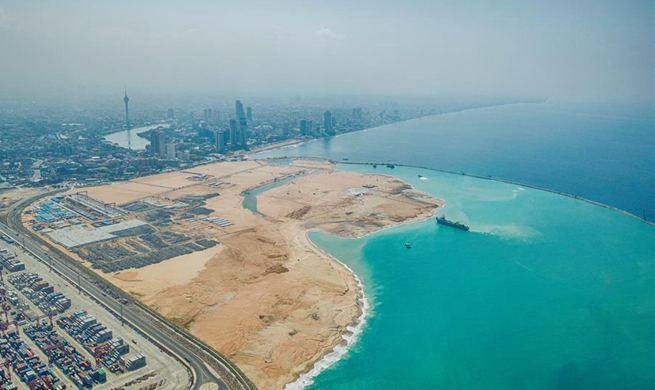NAIROBI, Jan. 24 (Xinhua) -- Environmental threats like climate change and pollution are linked to lethargic enforcement of laws governing management of vital ecosystems, says a report released on Thursday by UN Environment.
According to the first ever global assessment of environmental rule of law, the quest to maintain a healthy and clean planet is being undermined by weak enforcement of legislation to protect it from natural and human-induced threats.
"This report solves the mystery of why problems such as pollution, declining biodiversity and climate change persist despite the proliferation of environmental laws in recent decades," said David Boyd, UN Special Rapporteur on Human Rights and the Environment.
"Unless the environmental rule of law is strengthened, even seemingly rigorous rules are destined to fail and the fundamental human right to a healthy environment will go unfulfilled," he added.
The UN Environment report says that rapid development of environmental laws and treaties since 1972 has not translated into their enactment thus escalating threats to ecosystems that sustain livelihoods.
It says more than 1,100 environmental treaties and legal frameworks have been developed by national governments since 1972 when the UN environment agency was formed.
At the same time, donor support and robust domestic funding to facilitate development of new environmental laws has been consistent in the last four decades, but it has not been matched with their enforcement, says the report.
The report notes that poor coordination among government agencies, weak institutional capacity, lack of access to information, corruption and limited civic engagement has contributed to weak enforcement of environmental rule of laws.
"We have the machinery in the form of laws, regulations and agencies to govern our environment sustainably," said Joyce Msuya, UN Environment acting executive director.
"Political will is now critical to making sure our laws work for the planet. This first global assessment on environmental rule of law highlights the work those standing on the right side of history-and how many nations are stronger and safer as a result," she added.
The report reveals that 88 countries have adopted the constitutional right to a healthy environment while an additional 65 have enshrined environmental protection in their constitutions.
Likewise, over 350 environmental courts and tribunals have been established in more than 50 countries while over 60 countries have some legal provisions for citizen's right to environmental information.
Experts urged governments to address hiccups that have undermined enforcement of legislation that promote environmental governance.
Carl Bruch, director of international programs at the Environmental Law Institute said that a paradigm shift is required to ensure that a culture of compliance with environmental laws is embraced by key stakeholders.

















